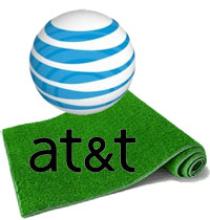Preserve Unlicensed Spectrum - White Spaces At Risk
If the future is wireless, we have to preserve unlicensed spaces. To explain: most wireless stuff uses licensed spectrum - where only a single entity has permission from the FCC to use a specific wavelength of spectrum. While this is great for those who can afford to license spectrum (companies like AT&T and Verizon), it is not particularly efficient because the rest of us cannot use those wavelengths even if AT&T and Verizon aren't (which is particularly a problem in rural areas).
Contrast that approach with Wi-Fi, which uses unlicensed spectrum. There are portions of spectrum where the FCC has said anyone can do anything. This is why we do not need permission to set up wireless networks in our house.
Last year, the FCC made a great decision to make "white spaces" wireless technology unlicensed -- which will allow more of us (again particularly in rural areas) to use white spaces without having to get permission. Because this decision creates a larger potential market, we would have more manufacturers interested in creating gear -- meaning more innovation and a lower cost to establish wireless networks (that are far more powerful than Wi-Fi allows).
But now Congress is considering reversing that decision and licensing that spectrum to generate a few billion dollars of one-time revenue for the government -- at a cost of far more than billions of dollars of lost opportunities, particularly in rural America where these unlicensed white spaces are the only real opportunity to rapidly deliver broadband in the short term.
In short, keeping these white spaces unlicensed will be far better for rural economies, innovation, and productivity than a one-time infusion of cash into the federal government.
These decisions are going to made shortly, so I encourage everyone to check out Public Knowledge's Action Alert calling on us to contact our members of Congress to oppose this approach.



